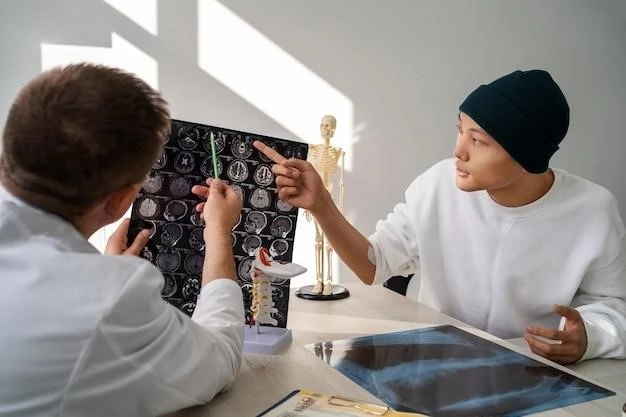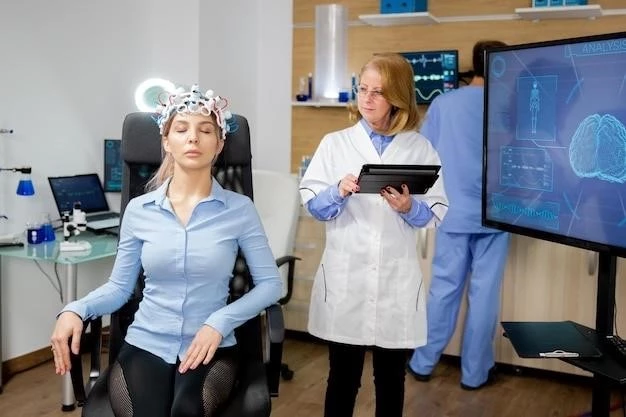Introduction
Neurosyphilis is a condition that challenges physicians due to its protean symptoms affecting the central nervous system. A high degree of suspicion and proper diagnostics are crucial.
Overview of Neurosyphilis
Neurosyphilis is a challenging condition where Treponema pallidum invades the central nervous system, leading to a wide range of neurological manifestations. Having a high index of suspicion and conducting appropriate diagnostic tests are crucial for timely management and prevention of severe complications.

Causes and Pathogenesis
Neurosyphilis is caused by the invasion of the central nervous system by Treponema pallidum, leading to a wide range of neurological symptoms. Understanding the pathogenesis of this infection is essential for effective management.
Invasion of the Central Nervous System
Neurosyphilis occurs when the bacterium Treponema pallidum invades the central nervous system, leading to a range of neurological symptoms. Understanding how this invasion occurs is crucial for diagnosing and managing the condition effectively.
Relationship to Syphilis Stages
Unlike primary, secondary, and tertiary syphilis, neurosyphilis can occur at any time after infection and may present in diverse stages. Understanding how neurosyphilis manifests in different syphilis stages is essential for accurate diagnosis and targeted management strategies.
Diagnosis
Accurate diagnosis of neurosyphilis involves conducting a lumbar puncture to analyze cerebrospinal fluid for Treponema pallidum antigens. Common tests include the VDRL and FTA-ABS tests.
Lumbar Puncture for Cerebrospinal Fluid Analysis
Diagnosing neurosyphilis often involves performing a lumbar puncture to analyze cerebrospinal fluid for specific Treponema pallidum antigens. The VDRL test, along with the FTA-ABS test, is commonly used for accurate diagnosis.
Antibody Testing for Treponema Pallidum Antigens
Diagnosing neurosyphilis involves testing for specific Treponema pallidum antigens in the cerebrospinal fluid. The VDRL test, commonly supplemented with FTA-ABS, helps confirm the presence of antibodies for accurate diagnosis.
Historical Perspectives
Throughout history, neurosyphilis has posed significant challenges to healthcare providers. The Tuskegee study highlighted ethical concerns in studying untreated syphilis, emphasizing the importance of ethical considerations in medical research.
Tuskegee Study and Ethical Issues
The infamous Tuskegee study shed light on ethical issues in medical research, emphasizing the importance of informed consent and ethical conduct in studying and treating conditions like neurosyphilis.
Clinical Presentation
Neurosyphilis presents with a wide range of signs and symptoms, varying from vasculitis and stroke to dementia, meningitis, or even presenting asymptomatically. Understanding these varied presentations is crucial for accurate diagnosis and appropriate management.
Variability of Signs and Symptoms
The clinical presentation of neurosyphilis can vary widely, with symptoms ranging from vasculitis, stroke, dementia, meningitis to completely asymptomatic. Recognizing this variability is crucial for timely diagnosis and tailored management approaches.
Neurosyphilis can manifest at any point after initial infection, impacting the central nervous system distinctively as the disease progresses through various syphilis stages. Recognizing neurosyphilis in different stages is crucial for appropriate intervention and management.
Neurological Manifestations
Neurosyphilis involves a range of neurological symptoms affecting the central nervous system, with manifestations such as meningitis, ocular involvement, and meningovascular complications. Recognizing these neurological signs is crucial for timely intervention and management.
Neurosyphilis in Different Stages of Syphilis
Neurosyphilis can manifest at various stages of syphilis, affecting the central nervous system uniquely as the disease progresses through different syphilis stages. The understanding of how neurosyphilis presents at different stages is crucial for accurate diagnosis and tailored treatment.
Ocular Involvement in Neurosyphilis
Neurosyphilis can affect various parts of the eye, with common manifestations including uveitis, episcleritis, vitritis, retinitis, papillitis, retinal detachment, and interstitial keratitis. Recognizing ocular involvement in neurosyphilis is crucial for comprehensive management.
Meningovascular Syphilis
Vasculature inflammation and ischemic events characterize meningovascular syphilis, a condition that can present as stroke or spinal cord infarction. Recognizing these signs promptly is crucial for appropriate management and prevention of serious complications.
Vasculature Inflammation and Ischemic Events
Meningovascular syphilis is characterized by inflammation of the vasculature supplying the central nervous system, leading to ischemic events such as strokes or spinal cord infarctions. Early recognition and appropriate management are key to preventing severe complications associated with this manifestation of neurosyphilis.
Treatment and Management
For patients diagnosed with neurosyphilis, prompt treatment is crucial; The standard treatment involves intravenous aqueous crystalline penicillin G, which has shown effectiveness against Treponema pallidum, the causative bacterium. The success of the therapy is often dependent on the timeliness of initiation and adherence to the prescribed regimen. Regular follow-up evaluations are essential to monitor progress and ensure the resolution of symptoms. In cases of allergic reactions to penicillin, alternative antibiotic regimens may be considered under the guidance of a healthcare provider.
Prevention and Outlook
Preventing neurosyphilis involves early diagnosis and treatment of syphilis infections to prevent the progression to the central nervous system. Regular screening for syphilis, especially in high-risk populations, can aid in early detection and timely intervention. With advances in diagnostics and treatment, the outlook for individuals with neurosyphilis is generally positive when managed promptly and effectively. Adhering to recommended treatment regimens and follow-ups is essential to prevent long-term complications and improve overall prognosis.
Global Impact of Neurosyphilis
Neurosyphilis, with its challenging diagnosis and management, has garnered global attention. The condition poses significant susceptibility questions and necessitates refinement of diagnostic tools to enhance accuracy. Research into cerebrospinal fluid examination continues to play a vital role in diagnosing neurosyphilis, despite lacking a definitive gold standard. The recommended therapeutic approach involving intravenous aqueous crystalline penicillin G remains essential for successful treatment outcomes. Efforts towards understanding the pathogenesis and improving diagnostic accuracy globally are crucial in addressing the impact of neurosyphilis.
Recent Advances and Research
Recent research on neurosyphilis has focused on advancing diagnostic tools to improve accuracy, especially in asymptomatic cases. Studies have highlighted the variability of clinical manifestations throughout the stages of syphilis, emphasizing the need for tailored treatment approaches. Ongoing investigations target enhancing understanding of the pathogenesis and epidemiology of neurosyphilis, aiming to refine strategies for early detection and management globally.

Complications of Untreated Neurosyphilis
Untreated neurosyphilis can result in devastating complications affecting the nervous system. These complications may include permanent paralysis, dementia, cognitive impairments, sensory ataxia, neuropathic pain, urinary incontinence, visual disturbances, and even life-threatening conditions such as stroke or spinal cord infarction. Early and appropriate treatment is essential to prevent these serious complications and preserve neurological function.
Conclusion
In conclusion, neurosyphilis remains a challenging condition due to its protean symptoms and impact on the central nervous system. With advancements in diagnostic tools and treatment strategies, early detection and appropriate management play a vital role in preventing severe complications. Global efforts to enhance understanding, diagnosis, and treatment of neurosyphilis are essential in improving outcomes and reducing the burden of this complex condition on individuals worldwide.
